AMD Ryzen 5 1600 CPU Review
Why you can trust Tom's Hardware
AotS: Escalation & Battlefield 1
Ashes of the Singularity: Escalation
Ashes of the Singularity was one of the first games to receive a Ryzen-specific patch, so it illustrates what can happen when a developer spends time optimizing for the Zen architecture's intricacies. We recorded impressive performance boosts after the update.
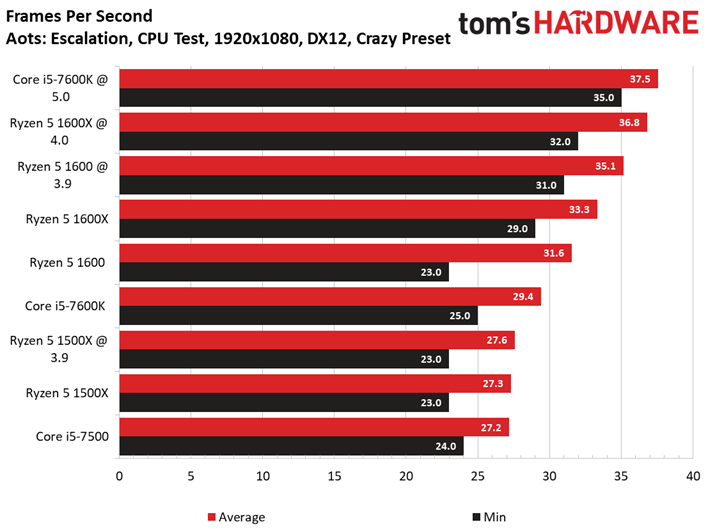
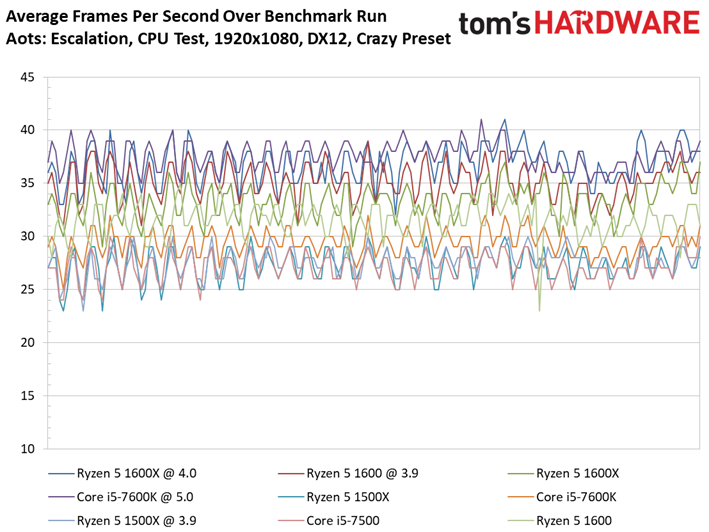
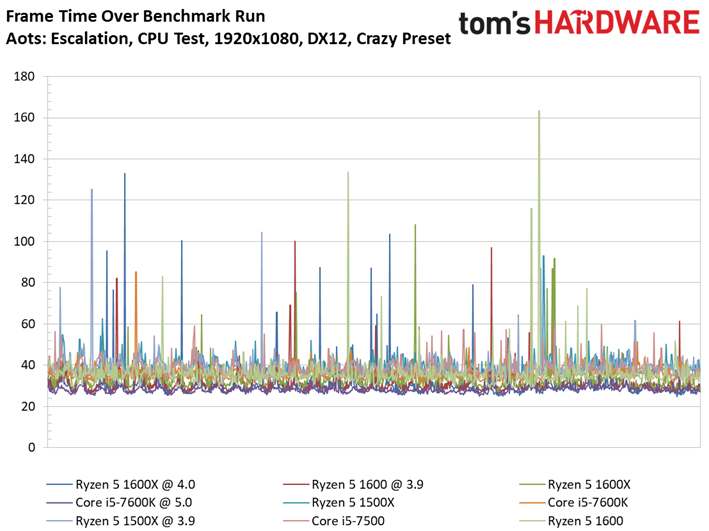
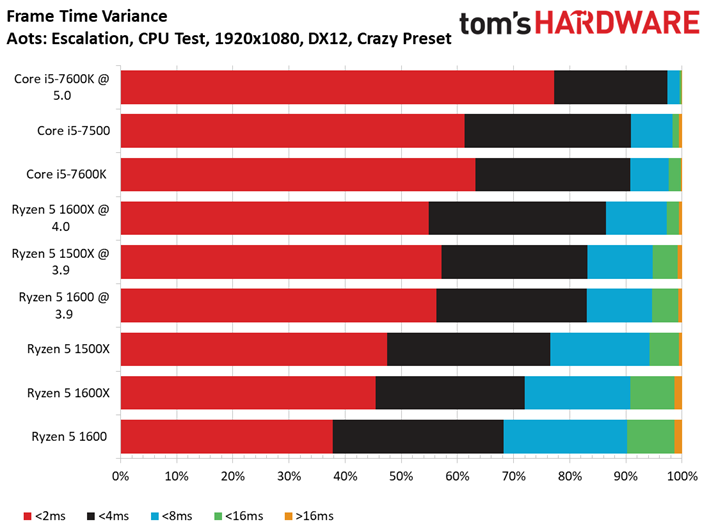
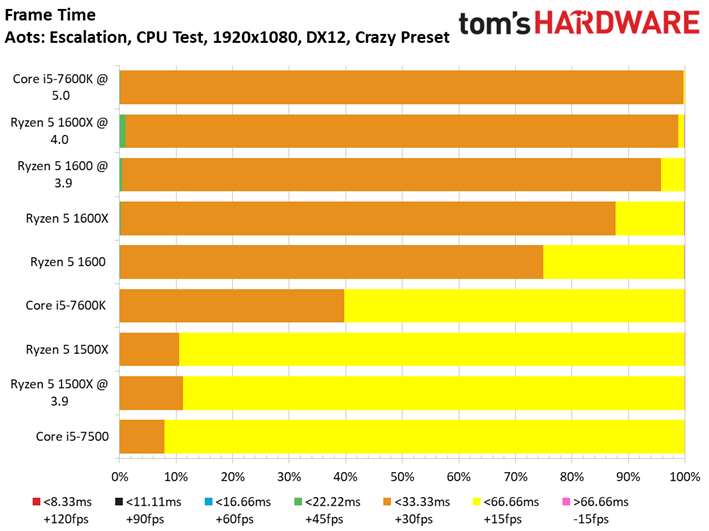
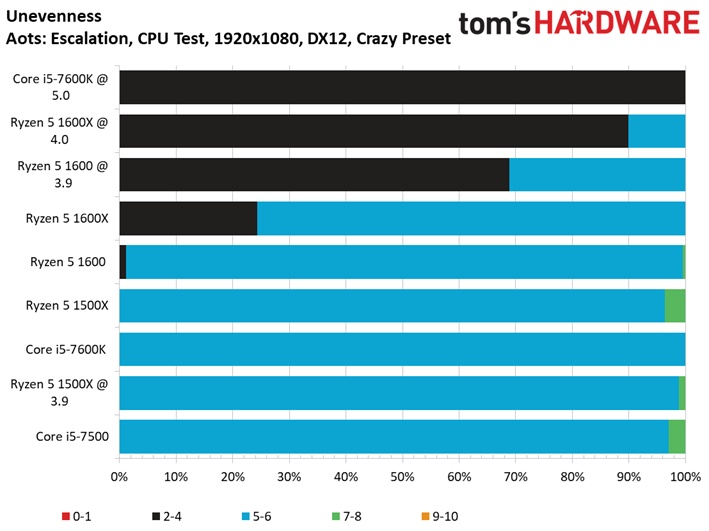
Ashes of the Singularity: Escalation scales exceedingly well with more cores/threads, rewarding the six-core Ryzen processors in both stock and overclocked configurations. Intel's Core i5-7600K has much more overclocking headroom, however, allowing it to take the pole position. In its stock configuration, the -7600K falls into the same range as the other four-core processors.
Notably, AMD's four-core Ryzen 5 1500X bests the Intel Core i5-7500, largely due to improved utilization, which is enabled by its SMT implementation.
The stock Ryzen 5 1600 experiences the most apparent frame time outliers during the test, but a bit of overclocking provides a drastic improvement.
Battlefield 1 DX12
We dialed Battlefield 1 up to the Ultra preset and took an armor-laden stroll across the O La Vittoria landscape.
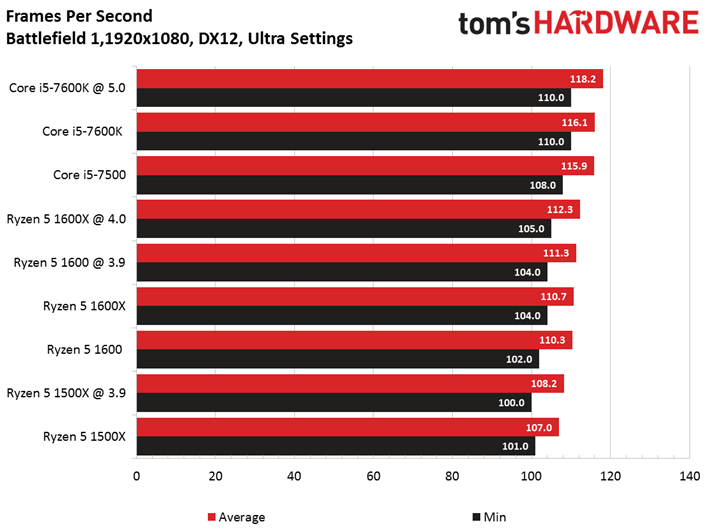
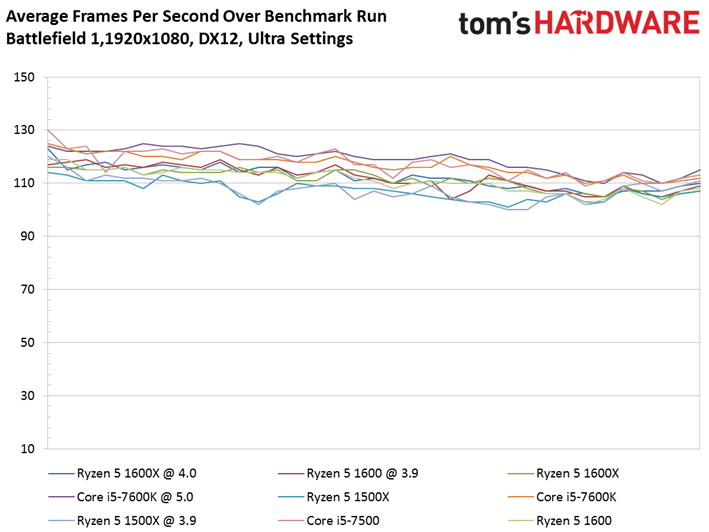
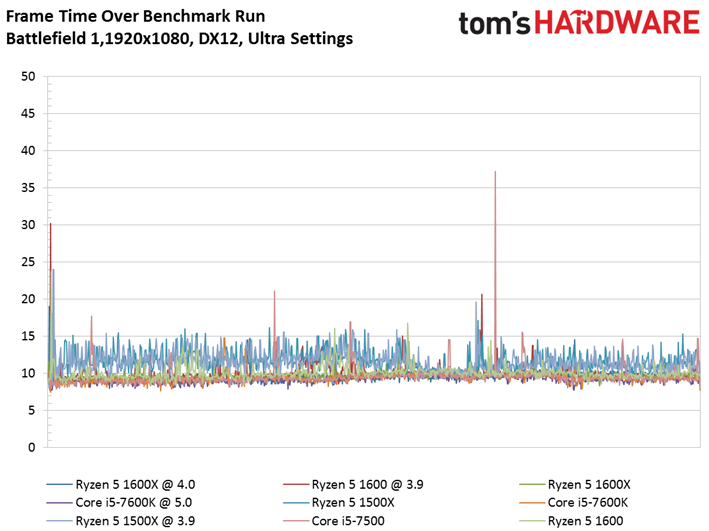
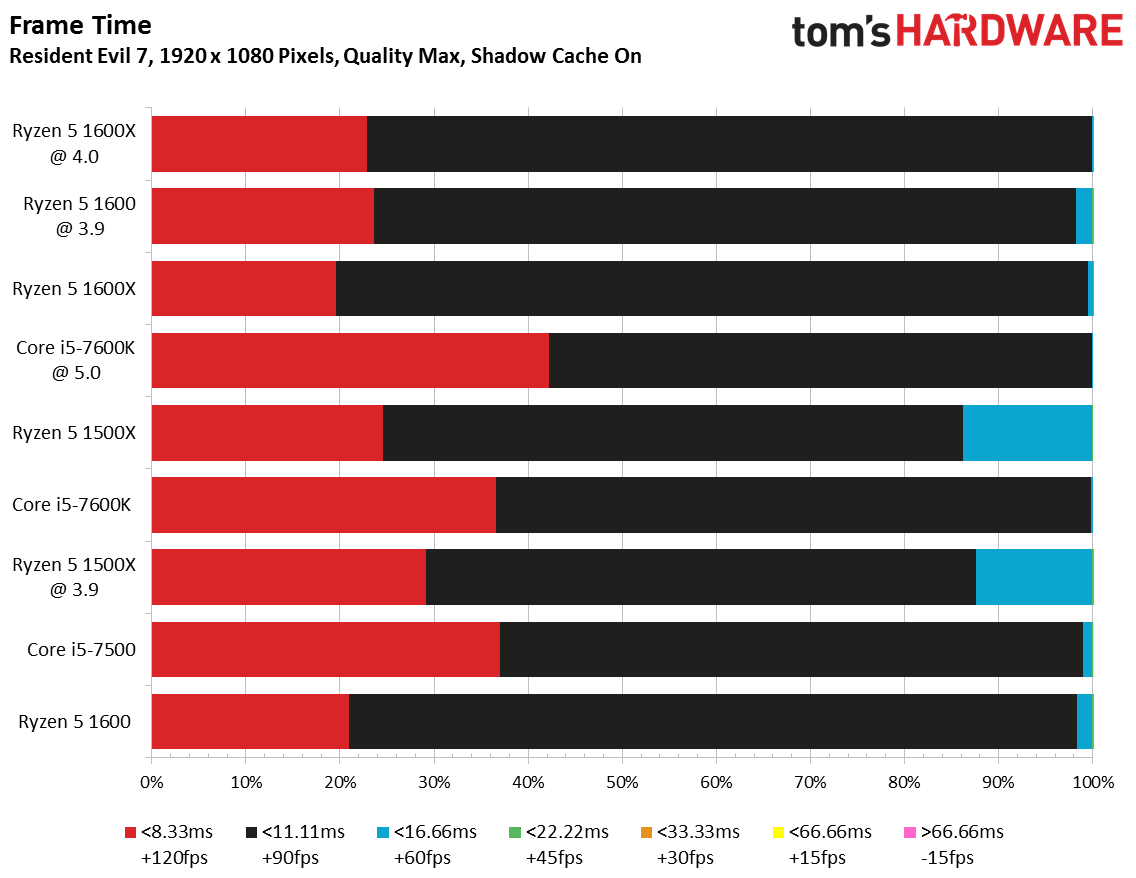
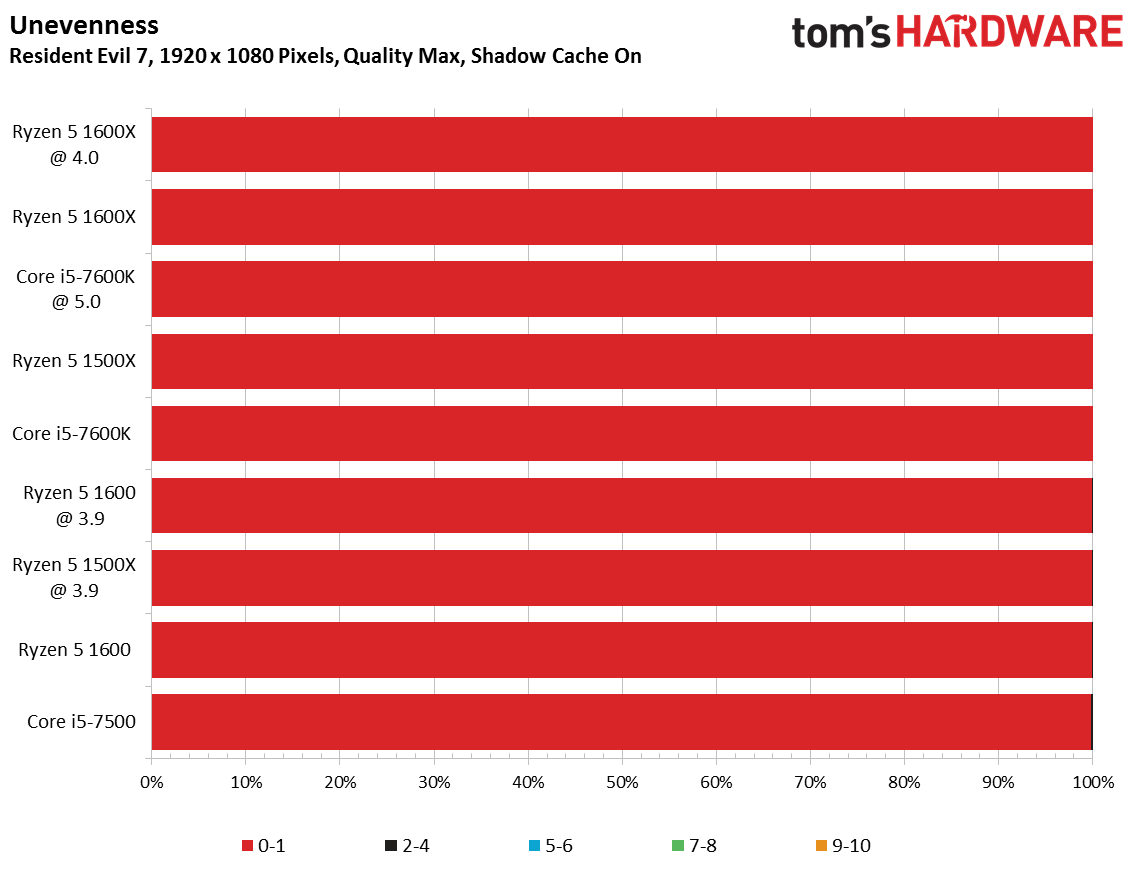
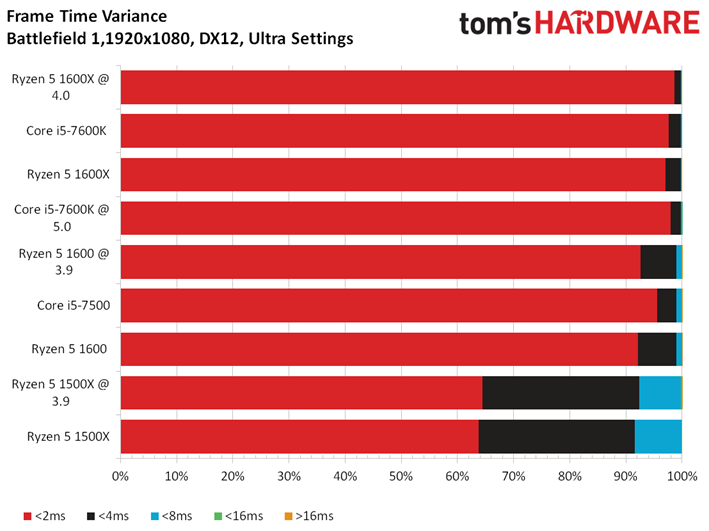
The Ryzen 5 1600 bests a four-core 1500X, but trails the rest of the field. Overclocking helps propel it to similar performance as the overclocked Ryzen 5 1600X.
Battlefield 1 DX11
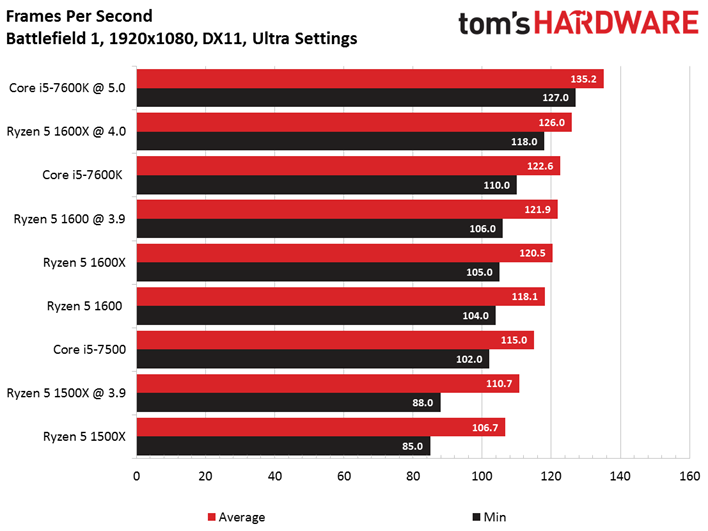
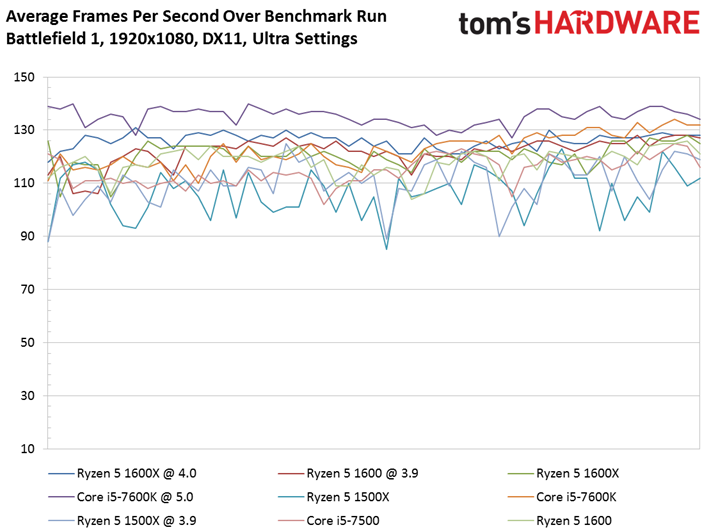
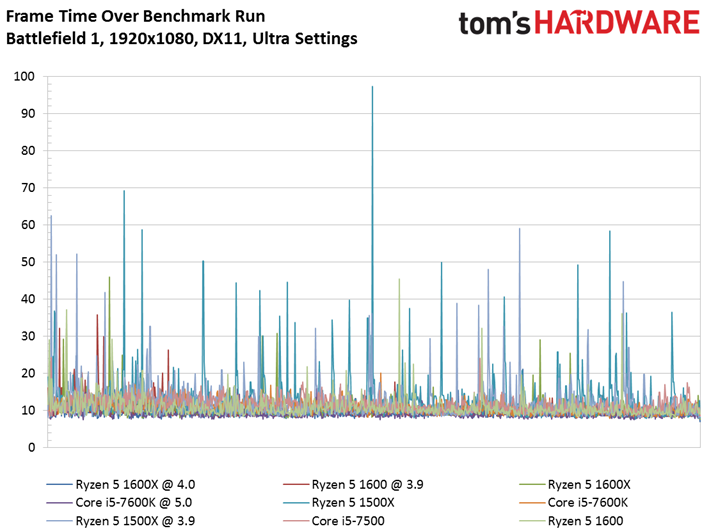
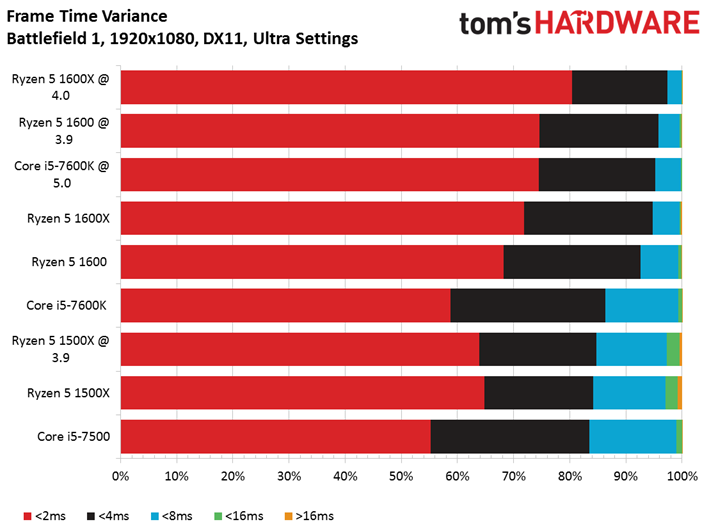
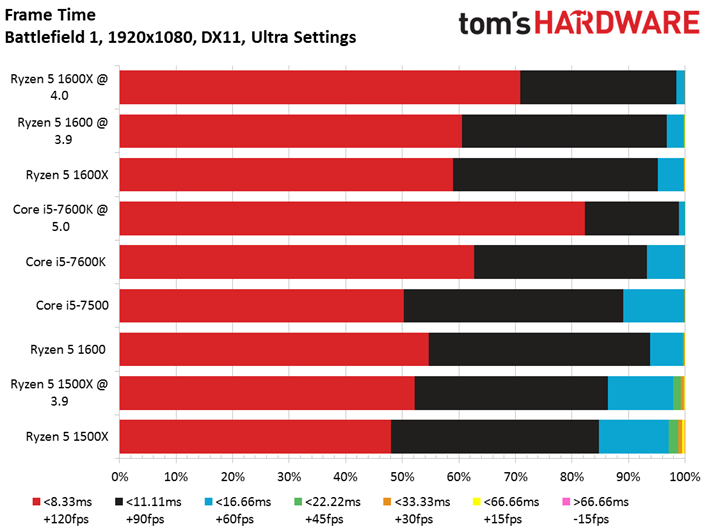
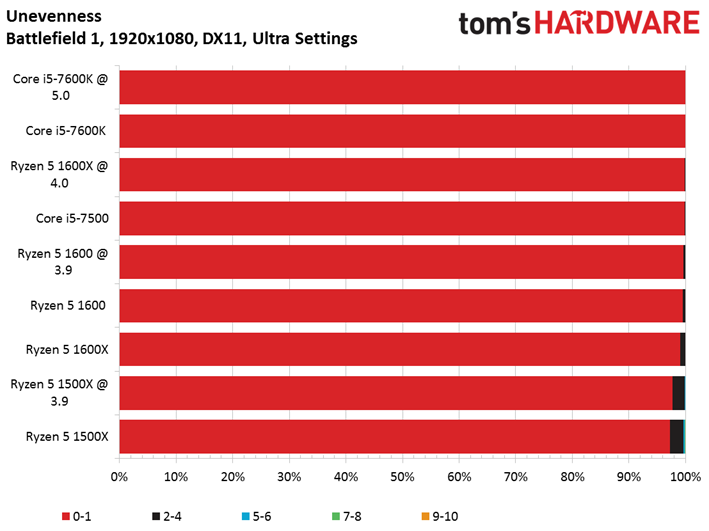
In Battlefield 1, under the DX11 API, Ryzen processors tend to score better relative to Intel's Core chips. Presenting benchmark results using different settings helps illustrate how even one game can paint different pictures of performance, depending on how it's set up.
Get Tom's Hardware's best news and in-depth reviews, straight to your inbox.
The stock Ryzen 5 1600 beats Intel's Core i5-7500, and overclocking widens the gap. We notice a much larger delta between the overclocked Ryzen 5 1600 and 1600X (3.25%) in this test. Then again, there is a 100 MHz difference in clock rate between the two processors (2.5%). The 1600X's 3200 MT/s memory data rate is also higher than the 1600's 2966 MT/s, and given the increased performance we find with faster memory, that likely contributes to the disparity. AMD's forthcoming AGESA update might improve memory overclocking with the Ryzen 5 1600, which would help get it closer to the 1600X.
Those big blue spikes in our frame time over run chart belong to the Ryzen 5 1500X. Not good.
MORE: Best CPUs
MORE: Intel & AMD Processor Hierarchy
MORE: All CPU Content
Current page: AotS: Escalation & Battlefield 1
Prev Page VRMark & 3D Mark Next Page Civilization VI & Dues Ex: Mankind Divided
Paul Alcorn is the Editor-in-Chief for Tom's Hardware US. He also writes news and reviews on CPUs, storage, and enterprise hardware.
-
AgentLozen I've been reading the reviews for the various Ryzen models including this one. I just have to say that it's soooo refreshing seeing AMD go toe to toe with Intel once again. We haven't seen a close race in years.Reply -
DavidDisciple 10-4. I was soooooo sick of hearing Intel fanboys brag and belittle AMD and now the tide has turned. It's great to see AMD providing some serious competition and a brand new architecture. It's also great to see an AMD 1st generation processor beat a 7th generation Intel processor.Reply -
barryv88 Finally! Took you guys very long to bring out this article - in what is described by many, the little champ of the Ryzen launch so far. The 1600.Reply
Can't wait to get mine! -
elbert Great review but the big gun was a no show. The 1600's stock cooler and can it do 3.7~3.8Ghz. How does that effect the game price effenciency if we add in cooler costs? How does streaming or just recording the game play for later upload effect performance? How about an older game like CSGO while recording? Can we have a part 2 to this review with these and other tests?Reply -
barryv88 Reply19749170 said:Great review but the big gun was a no show. The 1600's stock cooler and can it do 3.7~3.8Ghz. How does that effect the game price effenciency if we add in cooler costs? How does streaming or just recording the game play for later upload effect performance? How about an older game like CSGO while recording? Can we have a part 2 to this review with these and other tests?
You can check out Bitwit's vid on streaming/recording performance where Ryzen wins rather dramatically. The 7700 is really humbled, given that its 4 extra theads over the i5's don't help either.
https://www.youtube.com/watch?v=oXeenX0FZAY
-
ZRace @Elbert: When streaming, more use is usually being made of having more cores/threads available, so I'd guess the Ryzen CPUs yield better game streaming results compared to pure gaming results when comparing the to the current i5's.Reply -
darth_adversor I'm not an Intel fanboy by any means (I think it's fantastic that AMD is going head-to-head with Intel again), but for gaming, minimum frame-rate data is so much more important than average. The article does make a mention of that toward the end, but I don't think it was emphasized nearly as much as it should have been. I really want AMD to succeed (I was AMD all the way throughout the socket 754, 939, AM2/3 days), but if you look past the author's positive spin, I think the Core i5's are really the way to go for gaming.Reply
Hopefully that will change as the platform matures and the software catches up. I'm still sitting on a 2500k, probably gonna hold out for one more generation before I upgrade. I'd love to go back to AMD. -
DavidDisciple Yeah, and things just keep getting better for Ryzen with all the game optimizations and updates for memory compatibility and manufacturers like ROG are adding them in their performance gaming systems. Things are looking pretty good for Ryzen.Reply -
JocPro Hey, Paul: AMD has never said that non X processors lack XFR, they just have a more limited extra boost of 50-100 MHz instead of the 100-200 MHz in the X models...Reply -
Paul Alcorn Reply19749289 said:Hey, Paul: AMD has never said that non X processors lack XFR, they just have a more limited extra boost of 50-100 MHz instead of the 100-200 MHz in the X models...
I have marketing materials (reviewers guides, press releases, slides from briefings, etc.) that say, specifically and repetitively, that XFR is only on X SKUs.